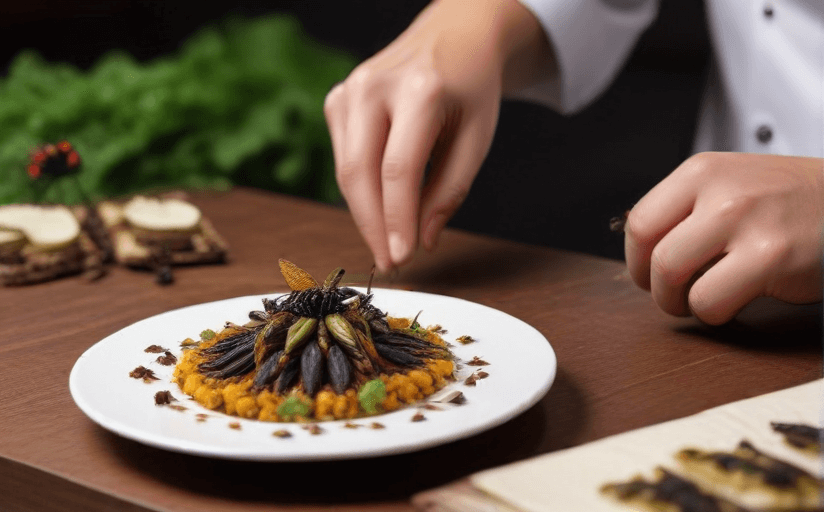The Benefits And Creativity Of Cooking With Edible Insects
If someone had told you a few years ago that edible insects would become the future of protein, you might have laughed it off. However, this is well on its way to becoming reality as we search for more sustainable methods of acquiring protein. Edible insects are gradually being incorporated into everyday cooking recipes and despite the strange connotation, the benefits of this trend are worth exploring.
The Nutritional Value Of Edible Insects
Despite their small size, insects pack a significant nutritional punch. They are rich in protein, fiber, and micronutrients like iron, zinc, and essential amino acids. Moreover, they compare favorably to more traditional sources of protein like chicken, beef, and fish in terms of nutritional value per serving.
Environmental Benefits Of Edible Insects
Edible insects offer an eco-friendly alternative to traditional meat. Their farming emits fewer greenhouse gases and requires less land and water. By switching to edible insects, we could make a significant impact on reducing our carbon footprint.
Edible Insect Varieties And Their Preparation
You might be surprised to learn about the variety of edible insects out there. Crickets, mealworms, and beetles are three common types, each with their unique taste and texture. Before consumption, they can be roasted, dried, or even ground into a flour for baking.
Integrating Edible Insects Into Your Diet
Edible insects are somewhat of an acquired taste, but with creative recipes, they can easily be integrated into a daily diet. For instance, cricket flour can be used in protein-packed pancakes or muffins, while roasted mealworms can add a crunchy texture to your salads or stir-fries.
Potential Challenges And Overcoming Them
The biggest challenge of incorporating edible insects into your diet is likely to be a mental one. It's essential to approach this dietary change with an open mind. Take it slow, perhaps by starting with insect flour before moving on to whole insects. Remember that the 'eww' factor is largely a social construct.
Common Misconceptions About Eating Insects
Common misconceptions about eating insects usually revolve around hygiene and taste. However, farmed edible insects are raised in clean conditions and subject to stringent health regulations. Taste-wise, most edible insects are described as having a neutral, nutty flavor.
In conclusion, incorporating edible insects into our diets offers nutritional and environmental benefits. It may not be the traditional way of consuming protein, but it's an eco-friendly option worth considering. Try it out–you might discover your new favorite ingredient!



















Comments
Leave a Comment